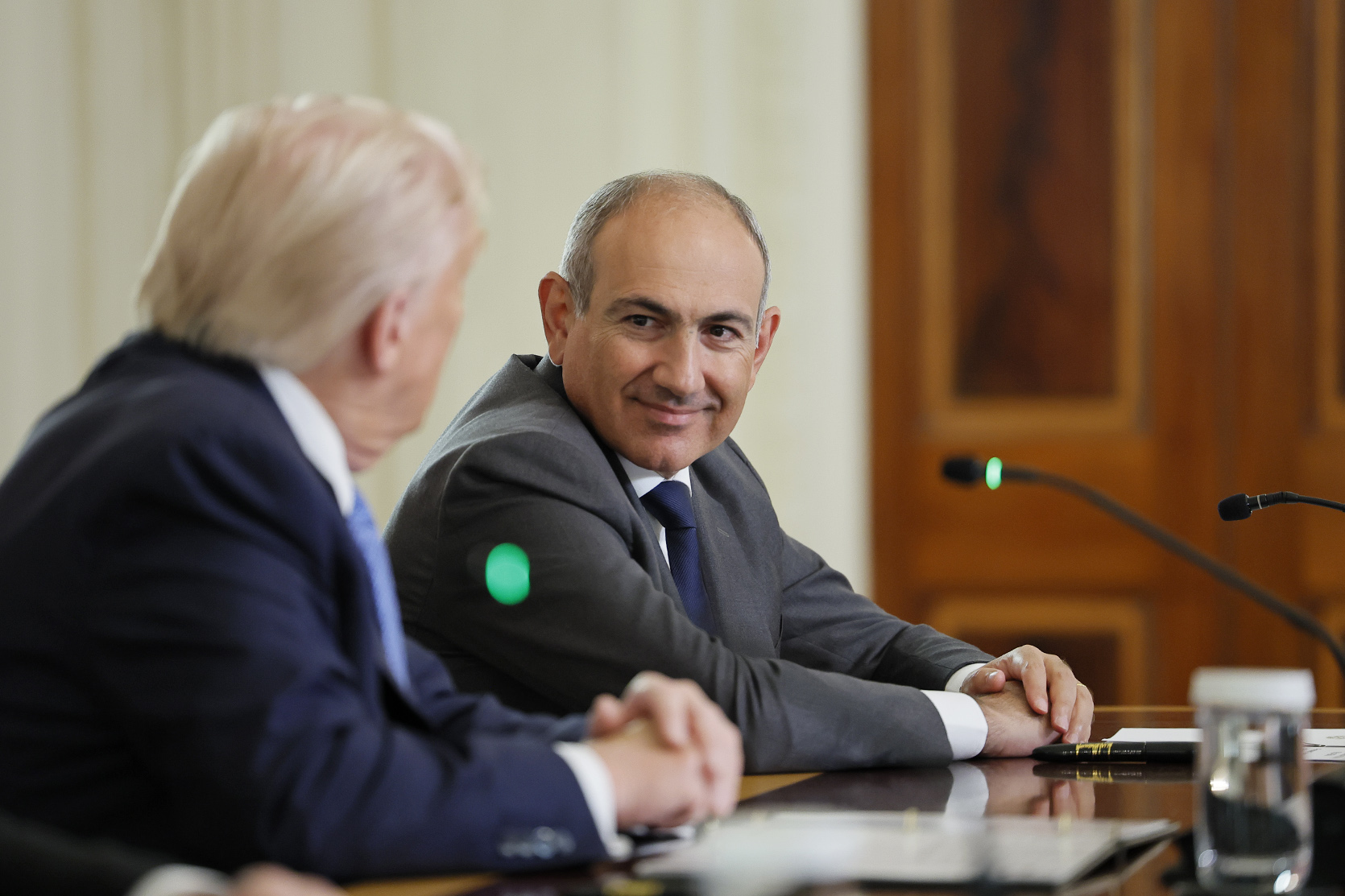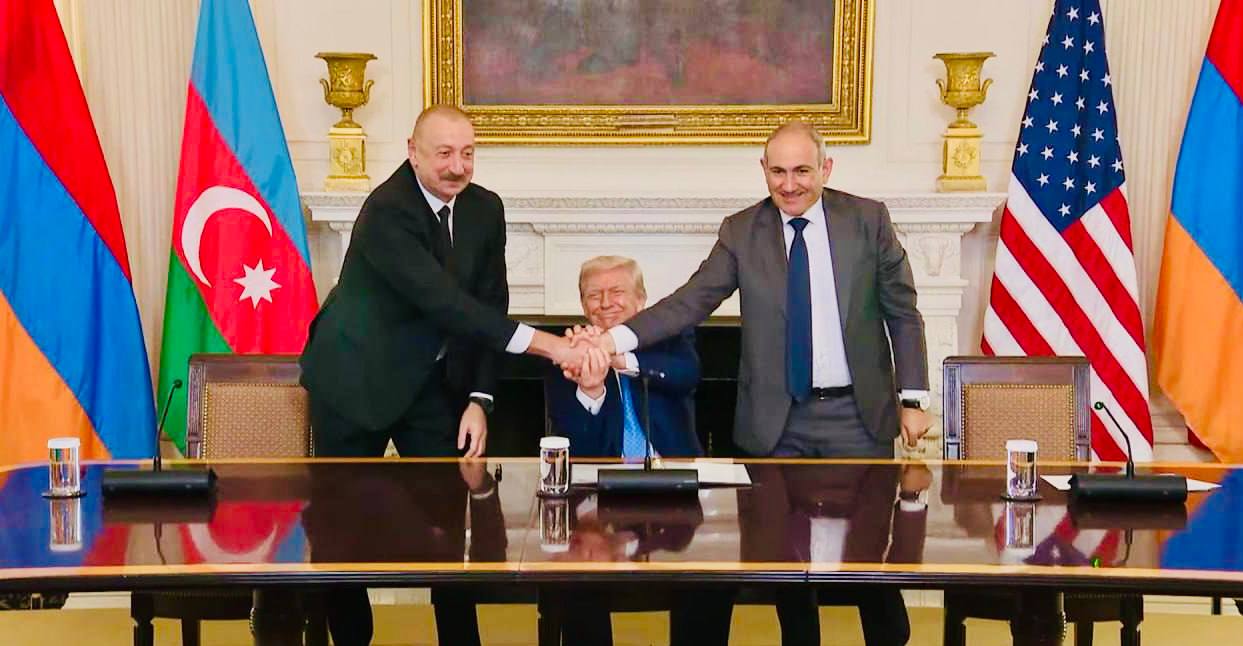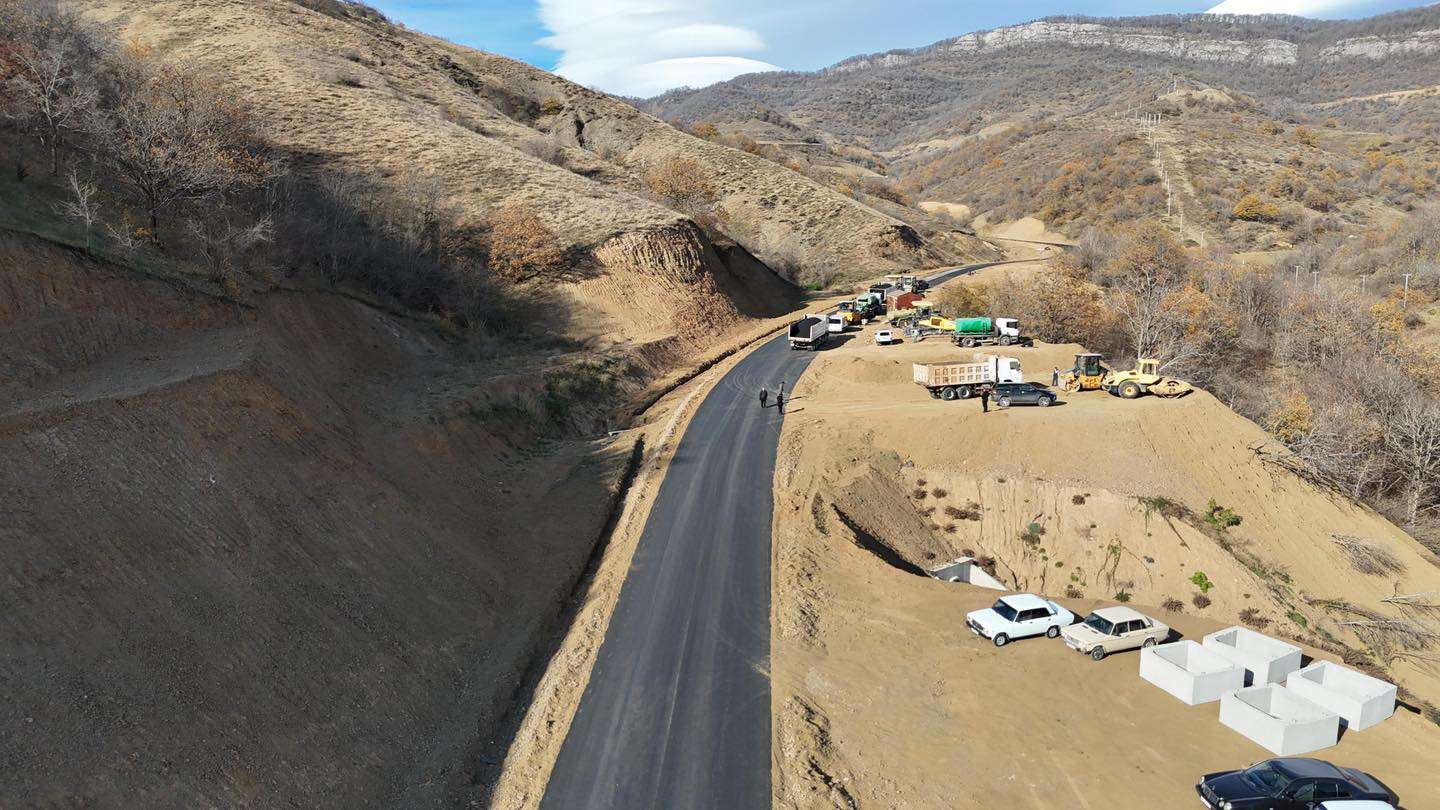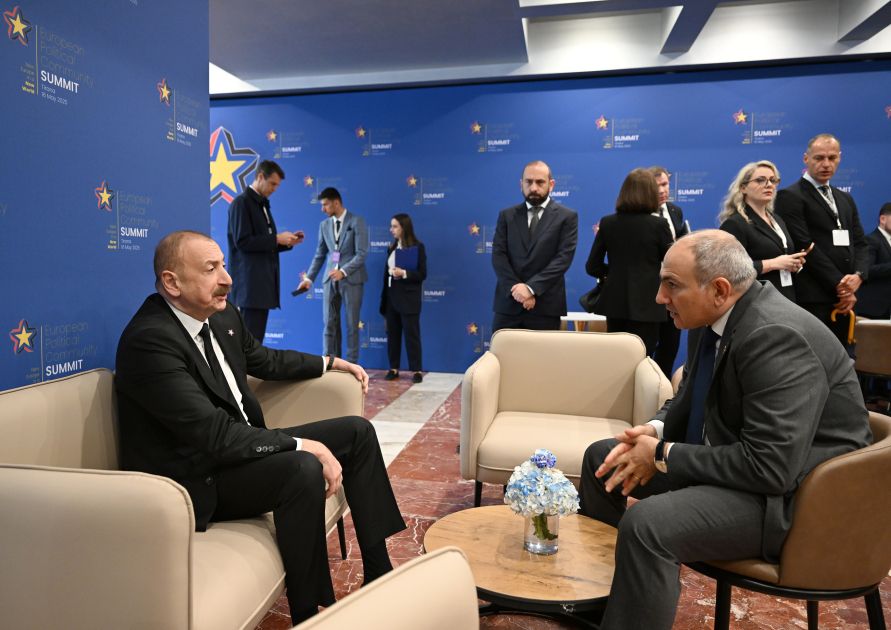‘No third-party control’ – Armenian foreign minister on the “Trump Route” programme
Armenian foreign minister on the Washington declaration
“The operation of infrastructure – including that to be built in Armenia under the US partnership – will take place within the territorial integrity, sovereignty and jurisdiction of the countries involved, and will ensure mutual benefit. Whatever the technical solutions, still to be discussed, they cannot go beyond these principles,” Armenian foreign minister Ararat Mirzoyan said, speaking about the “Trump Route” programme.
The Trump Route (Trump Route for International Peace and Prosperity – TRIPP) is a planned road linking mainland Azerbaijan with its exclave Nakhchivan. Armenia and Azerbaijan have agreed to reopen it with the participation of an Armenian–US consortium.
Mirzoyan stressed that the Washington declaration does not envisage any third-party control over the road. He was responding to the Armenian parliamentary opposition and some experts who use the term “corridor”, amid claims that Armenia had supposedly agreed to grant Azerbaijan an extraterritorial road. “With the persistence of a mule, some ‘independent experts’ or ‘dependent party figures’ keep spreading terms that have always been unacceptable to Yerevan and are absent from the Washington declaration,” he said.
In an interview with Armenpress, Mirzoyan said such interpretations were “either a product of their imagination or an attempt to mislead people”.
Details – what the declaration says, and Mirzoyan’s comments.
- ‘A chance to curb Aliyev’s ambitions’: what Armenia expects from Trump-mediated talks
- “The route through Armenia will be an alternative, not the main one”: expert opinion
- “If only the Azerbaijan–Nakhichevan route opens, Armenia’s blockade will deepen” — Opinion
The provisions of the declaration on the “reciprocity” of benefits in reopening transport links
The Washington declaration, signed on 8 August following the Trump–Pashinyan–Aliyev meeting, contains seven points.
It covers:
- the initialling of a peace treaty between Armenia and Azerbaijan
- the affirmation of the inviolability of international borders
- the inadmissibility of using force to seize territory
- the rejection of any acts of retaliation now or in the future
- the dissolution of the OSCE Minsk Group and related structures
On the “Trump Route” programme, the declaration states: “Armenia will work with the United States and mutually agreed third parties to define the framework for implementing the programme on Armenian territory.”
After the signing, Armenia’s prime minister told reporters that the US intends to be the main investor in the Trump Route, but that Armenia is also ready to work with third parties, including other investors. Pashinyan thanked the US president for showing flexibility on the issue.
“Our goal is for this project to bring involvement, and to attract other partners wherever possible, rather than creating tension or confrontation. No one should think that the Trump Route project is aimed against them, because it truly is not,” he said.
The declaration says the sides confirmed the importance of reopening transport links between the two countries for domestic, bilateral and international traffic, while stressing respect for the sovereignty, territorial integrity and jurisdiction of states:
“These efforts will include unimpeded communications between the main part of the Republic of Azerbaijan and the Nakhchivan Autonomous Republic through the territory of the Republic of Armenia, with mutual benefits for Armenia from international and domestic communications.”
At the press conference following the Washington meeting, journalists asked the prime minister whether this reference to mutual benefits also meant unimpeded communications for Armenia.
“[The document] sets out one benefit, and says that Armenia should have the same benefit. Reciprocity means that if roads are opened for Azerbaijan, they are opened for Armenia too. If they are not opened for Azerbaijan, they are not opened for Armenia either. Although that option is no longer on the table now,” he replied.
Armenia gains access to Azerbaijan’s railway infrastructure
Armenia’s foreign minister said that with the agreement on reopening transport links, a “very important and decisive” stage had been completed – talks on the general principles for operating the infrastructure.
“But this is only one stage. Now we face huge work to clarify and agree on more specific conditions and technical solutions,” he said.
Ararat Mirzoyan stressed that, under the Washington declaration, a major development was taking place – Armenia’s transport links are being reopened.
“This is what Armenia has been striving for over the past 35 years. From now on, Armenia gains access to, and can use, Azerbaijan’s railway infrastructure for international trade. […] The agreements in the Washington declaration clearly carry even more weight thanks to the participation of the US side and the US president’s signature as a witness.”
Yerevan to begin talks on Trump Route details
Foreign minister Ararat Mirzoyan said the US president had signed an order to set up a working group to implement the “Trump Route for International Peace and Prosperity” programme.
“In the near future, we expect high-level discussions in Yerevan on this issue. We should use this important moment to leave future generations a more connected South Caucasus,” he said.
He described his visit to Washington as important also for advancing the Armenia–US strategic partnership agenda. Following bilateral talks, the two sides signed three memorandums:
Memorandum on Armenia’s “Crossroads of Peace” regional reopening project:
The US expressed support for the “Crossroads of Peace” project, emphasising Armenia’s role as a regional transport hub. It highlighted the need to ensure Armenia’s infrastructure and border security, including with the participation of private investors.
Memorandum on artificial intelligence and semiconductor innovation:
Aimed at deepening cooperation in high-tech, with a focus on developing a semiconductor ecosystem and applying artificial intelligence.
Memorandum on energy security:
Intended to support Armenia’s energy resilience and modernisation of its energy system, encourage private investment, and develop civilian nuclear power.
According to Mirzoyan, there is an agreement with US secretary of state Marco Rubio to step up joint work on implementing the components of the strategic partnership.
Initialling of peace treaty a “historic event”
The Armenian foreign minister called the initialling of the peace agreement at the White House a “historic event.”
“It has become a major milestone in the process of resolving Armenian–Azerbaijani relations. The initialling and the subsequent public statements showed that peace – in the sense of no escalation on the border – has already been established. In essence, a stage of institutionalising peace is now beginning,” he said.
Mirzoyan also addressed the text of the peace treaty itself, saying he was convinced that once it is published, “with a rational approach, all speculation will stop from that moment.”
Armenian foreign minister on the Washington declaration






















